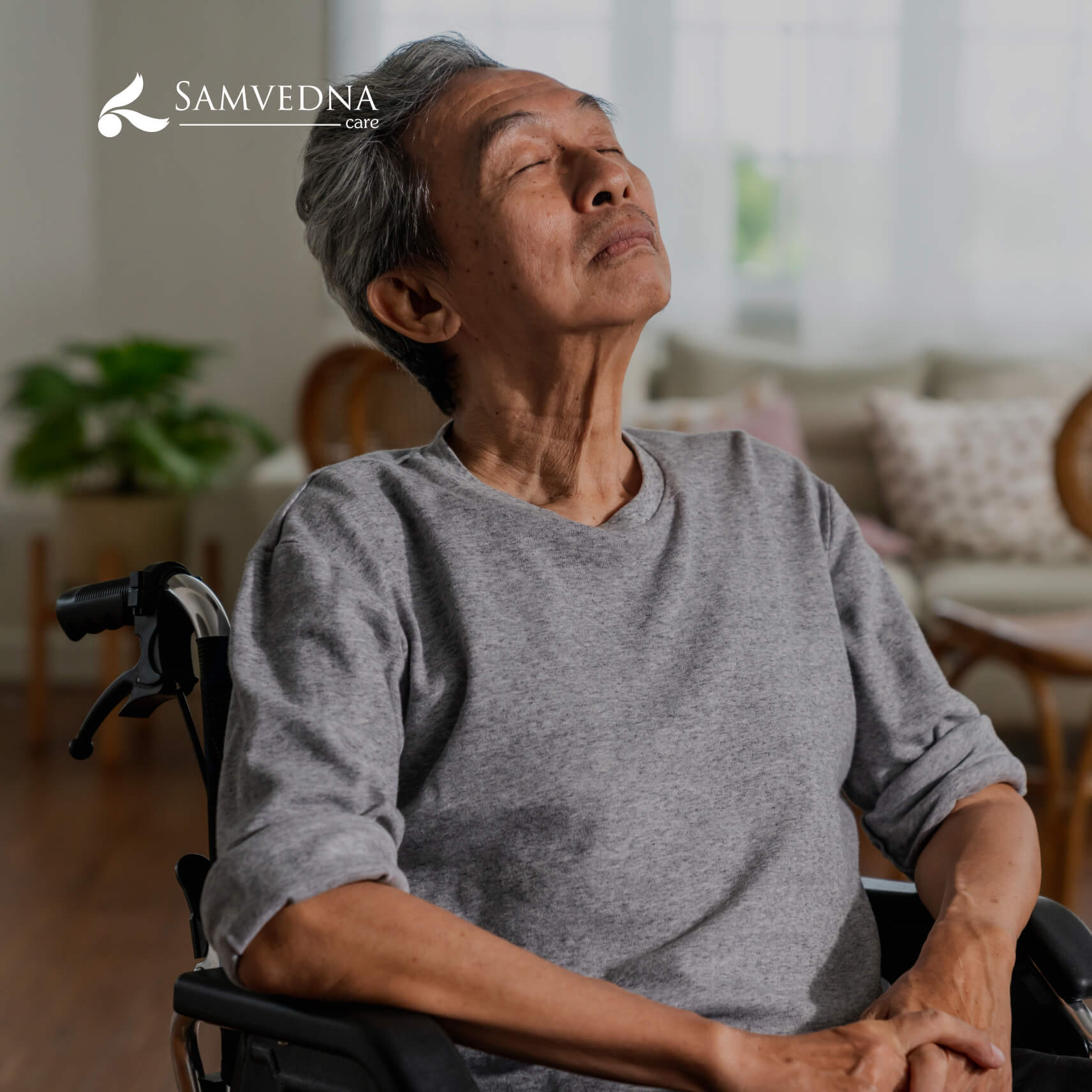Contact Us




Dementia presents a complex challenge, affecting millions globally with its progressive cognitive decline. Amidst the maze of symptoms, pain often remains a silent companion, frequently overlooked or misunderstood. Yet, proper recognition and management of pain in dementia patients are pivotal for enhancing their quality of life and easing the burden on caregivers.
Communication barriers pose a significant obstacle in identifying pain in a person with dementia. Verbal expressions diminish, leaving behind behavioral cues as the primary means of communication. Consequently, caregivers must remain vigilant for subtle signs that may indicate distress. Untreated pain can also cause the person with dementia to become more withdrawn. At Samvedna Care, our team of mental health therapist recognizes the importance of identifying and addressing pain in dementia patients to improve their quality of life. Let us delve into the nuances of recognizing and treating pain in individuals living with dementia.
Recognizing Pain
Identifying pain in dementia patients requires a multifaceted approach. Since verbal communication may be limited, caregivers and healthcare professionals must be vigilant in observing nonverbal cues such as facial expressions, body language, changes in behaviour, and agitation. Persistent patterns of restlessness, aggression, or withdrawal can also signal underlying pain. Mental health therapists work closely with caregivers to educate them on recognizing these subtle signs of pain.
Here are 5 key signs of pain in dementia patients:
1. Behavioural Changes: Increased agitation, aggression, or restlessness can be indicators of pain.
2. Facial Expressions: Grimacing, frowning may signal discomfort.
3. Vocalizations: Moaning, groaning, or other unusual sounds can be expressions of pain.
4. Body Language: Guarding a part of the body, rubbing, fidgeting or holding an area may indicate pain.
5. Changes in Routine: Changes in eating, sleeping more or less or mobility patterns can be red flags.
A thorough dementia diagnosis is essential, not just for gauging cognitive impairment but also for crafting comprehensive care strategies. Accurate dementia diagnosis benefits caregivers and healthcare professionals immensely, as it allows them to anticipate and address potential sources of pain, such as arthritis and other prevalent chronic conditions among the elderly. Armed with this knowledge, caregivers can be more vigilant in identifying signs of pain, thereby enhancing the quality of care provided.
Pain Management
Early and precise dementia diagnosis enables tailored care plans that encompass both cognitive and physical health needs. Pain management becomes an integral component of this strategy, incorporating a blend of pharmacological and non-pharmacological approaches. The goal is to alleviate pain without inducing additional side effects, starting with the lowest effective dose and closely monitoring the individual for any adverse reactions, with adjustments made as necessary.
Non-pharmacological approaches such as music therapy, massage, gentle exercise, and aromatherapy can provide effective pain relief and enhance overall well-being without the risk of adverse effects associated with medications.
Empowering Caregivers
Providing support and education to caregivers is an integral part of pain management in dementia patients. Mental health therapists through caregiver enablement sessions equip caregivers with the knowledge and skills needed to recognize, assess, and manage pain effectively. By empowering caregivers, we enhance their ability to provide compassionate and holistic care to individuals living with dementia.Addressing pain in dementia patients requires a compassionate, informed, and holistic approach. As awareness grows and standards of care evolve, better outcomes can be achieved for those grappling with this challenging condition. At Samvedna Care, our dementia care services help caregivers understand the complexities of pain perception in dementia. By leveraging specialized assessment tools, and empowering caregivers with knowledge and skills, we strive to enhance the quality of life for individuals living with dementia. Samvedna Care offers comprehensive dementia care services to help patients and families navigate the care journey more comfortably. Through our dedication and commitment, we advocate for a compassionate and comprehensive approach to dementia care that prioritizes the alleviation of pain and promotes dignity and comfort for all patients.